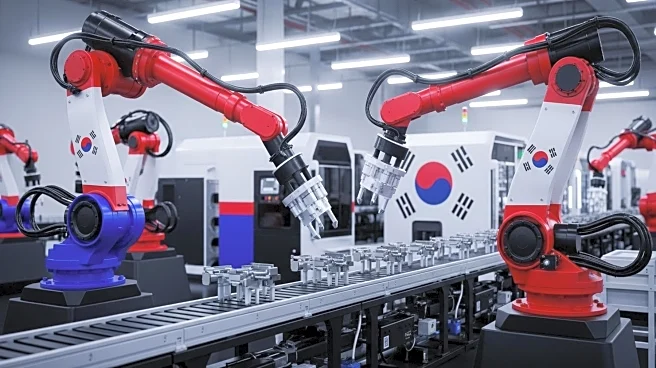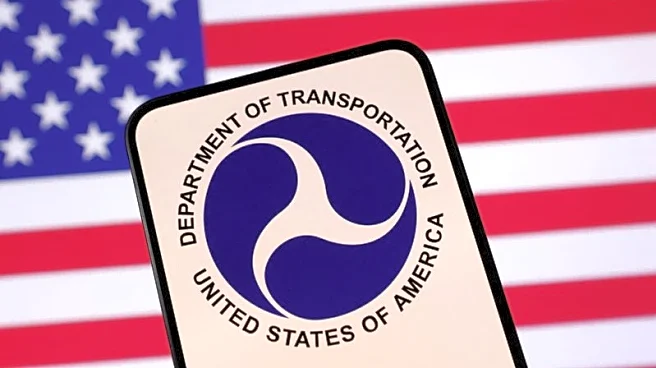What's Happening?
A recent U.S. immigration raid at a Hyundai-LG battery plant in Ellabell, Georgia, has led to significant disruptions in South Korean investment and manufacturing operations in the United States. The raid resulted in the detention of over 300 South Korean workers, sparking protests in Seoul and across Asia. This incident has prompted major South Korean companies, including Hyundai and Samsung, to reassess their U.S. investment strategies due to visa and staffing challenges. Hyundai has invested approximately $20 billion in the U.S. since the 1980s, with plans for new plants and a steel mill. Samsung announced a $37 billion semiconductor factory in Texas, but the fallout from the raid threatens these projects. The U.S. government has promised to streamline legal visa processes while emphasizing the importance of respecting immigration laws, complicating efforts for companies to bring in specialized staff.
Why It's Important?
The raid highlights growing tensions between U.S. immigration policy and foreign investment goals, particularly affecting South Korean firms. Increased enforcement actions may deter future investments from South Korean companies, potentially pushing them to consider alternative regions such as Latin America or Europe. This situation underscores the challenges faced by foreign firms in navigating U.S. immigration laws while attempting to expand their operations. The incident could have broader implications for U.S.-South Korea trade relations, as companies struggle with work visa issues and reconsider their U.S. projects. The balance between enforcing immigration laws and attracting foreign manufacturing investments is becoming increasingly complex, with potential impacts on economic growth and international business relations.
What's Next?
As U.S. officials plan more enforcement actions, companies may seek legal solutions to bring in skilled foreign workers or explore alternative regions for investment. The incident may lead to policy reforms aimed at easing visa access for foreign firms, but uncertainty remains high. Companies like Hyundai and Samsung face potential delays and shifts in their U.S. expansion strategies, weighing the risks of future enforcement against their growth plans. The situation calls for a careful balancing act between immigration law enforcement and the need for skilled foreign workers to support manufacturing investments.
Beyond the Headlines
The clash between U.S. immigration policies and the desire to attract foreign manufacturing investments raises ethical and legal questions about the treatment of foreign workers and the impact on international business relations. The incident may trigger long-term shifts in how foreign companies approach U.S. investments, potentially influencing global trade dynamics and economic partnerships.










